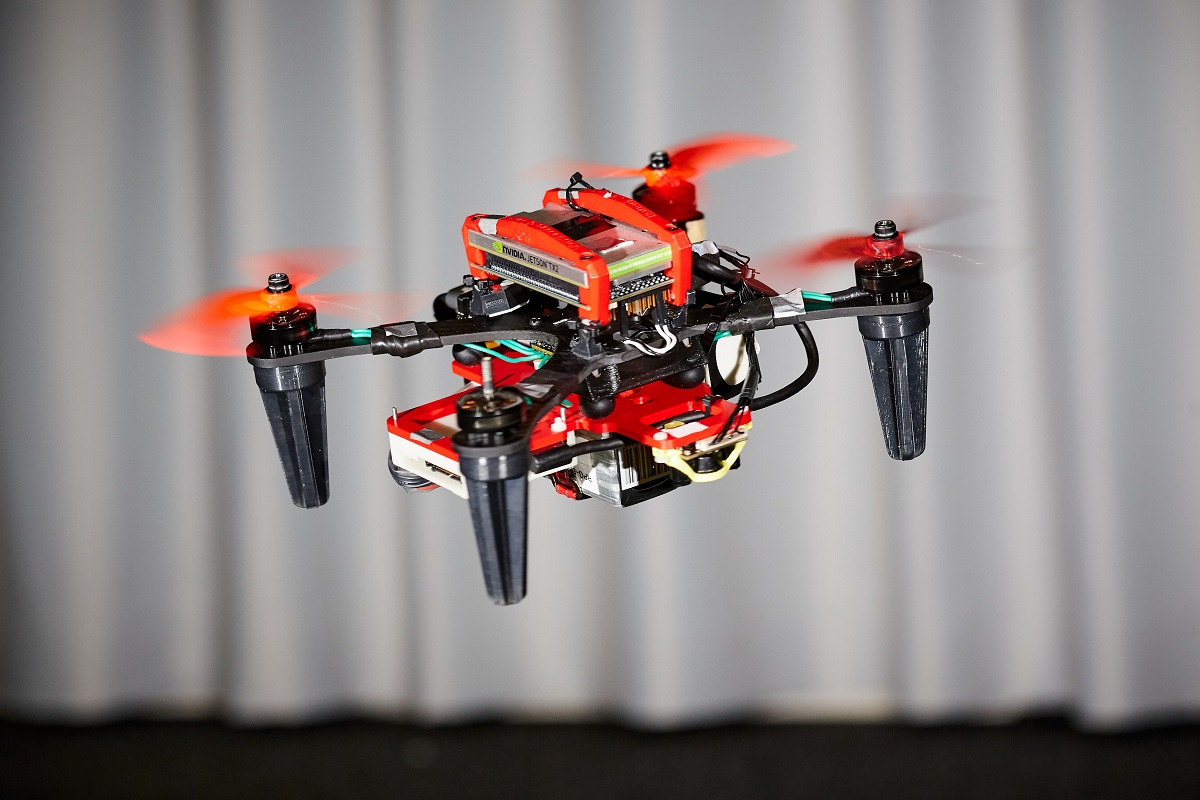
Drones with four propellers (also called quadcopters) run into difficulties when one of their rotors stops working. Davide Scaramuzza, Head of the Robotics and Perception Group at the University of Zurich (UZH), explains in a press release: ““When one rotor fails, the drone begins to spin on itself like a ballerina.” He goes on to say that the high-speed rotational movement causes standard controllers to fail.
When a drone starts to spin, it is no longer able to determine its position in space and crashes. However, a crash can be prevented if the drone has access to very precise position measurements. One way to solve this problem is to give the drone a reference position with the aid of GPS, but this doesn’t work in all environments.
Researchers from the UZH together with colleagues from the Delft University of Technology have presented a method in which the drone can fall back on visual information from several in-built cameras to orient itself instead of GPS data. For their experiments, the researchers kitted out drones with standard cameras and event cameras, which can also work well in low light levels. They have also developed algorithms that can process the information gained, enabling the on-board computer to then steer the drone if it is flying with only three rotors.
The researchers are confident that their work can improve flight safety for quadcopters, above all in fields of application where GPS signal is weak or not present at all.
Related news
Contact us
Can we put you in touch with a peer company or research institute? Do you need any information regarding your strategic expansion to Switzerland's technology and business center?
info@greaterzuricharea.com